If you follow a plant-based diet, chances are you think you've heard all about vitamin B12 already.
From lethargy to irreversible damages to our nervous system, the risks of B12 deficiency have been thoroughly studied, and vegans and meat-eaters alike are now well aware of the importance of this vitamin and what food sources they should consume on the daily.
But what about the different forms of vitamin B12?
This is an often misunderstood or neglected side of the B12 conversation, but knowing the difference between methylcobalamin, cyanocobalamin, and adenosylcobalamin is a crucial step in choosing the best B12 supplement for your body and taking control of your health.
What's the difference between methylcobalamin and cyanocobalamin?

Simply put, methylcobalamin is a naturally occurring form of B12 that can be absorbed through either dietary sources or supplements, while cyanocobalamin is a synthetic form of vitamin B12 that can only be found in supplements.
Conversion and absorption of the different forms of vitamin B12
The methylcobalamin form of vitamin B12 is the most popular active form of the nutrient for a reason — it plays a crucial role in our methylation cycle, the function through which our DNA is controlled and regenerated, hormones are synthesized, our immunity is maintained, and so much more.
It's only when B12 supplementation includes methylcobalamin that these essential functions can be optimized. Consuming B12 in this form is also considered beneficial for those suffering from a methylation defect.
Cyanocobalamin, on the other hand, is not converted into active B12 as easily. When large quantities of cyanocobalamin are introduced into the body, one part is excreted and the other is broken down into B12 (cobalamin) and cyanide.
Yes, you read that right!
Is cyanocobalamin safe?

One of the biggest issues with cyanocobalamin is that it does, in fact, contain a cyanide molecule.
Now, it's worth noting that the amount of cyanide found in cyanocobalamin is extremely low, and that several healthy plant foods (like lima beans) contain trace amounts of cyanide as well. Consuming vitamin B12 in this form won't poison you, and it is generally considered safe, but the necessary conversion needed to absorb the cobalamin does constitute a clear metabolic disadvantage.
Still, smokers and individuals with a special cyanide sensitivity would do well in staying clear of this form of vitamin B12.
Is methylcobalamin natural?

Methylcobalamin is natural in the sense that it is naturally found in the body, along with adenosylcobalamin.
The latter is required by our cells to metabolize energy, and just like methylcobalamin, it is mostly stored in the liver and it is considered substantially more bioavailable than the cyanocobalamin type of vitamin B12.
You can get methylcobalamin through supplementation as well as vegan food sources like nutritional yeast, and animal products like dairy, meat, and eggs.
So, is methylcobalamin the best form of B12?
Methylcobalamin is considered to be easier for our body to absorb and use than cyanocobalamin, as the latter needs to be converted within our body first in order to be used. It doesn't contain any possibly harmful substances, and it's been found to be the form that's more easily stored in our liver for later use, along with the co-enzyme adenosylcobalamin.
Methylcobalamin is an all-around winner when it comes to B12 forms, and that's why other lesser forms are slowly but surely being phased out of the supplements market.
Recommended Intake of Cyanocobalamin and Methylcobalamin

So, how much cyanocobalamin and methylcobalamin do we actually need for our red blood cells and nervous system to function optimally? The recommended intake tends to vary depending on our age, diet, and existing physical conditions.
For Vegans
Vegans should be particularly wary of getting enough vitamin B12, as there are no natural dietary sources that are 100% plant-based.
For adults under age 65, the easiest way to get B12 is to take at least 2,000 mcg each week or a daily dose of 50 mcg. As we age, our ability to absorb this vitamin may decline, so those over 65 years of age should increase their intake to 1,000 mcg of B12 a day.
Keep in mind that this is a blanket recommendation, so if you are worried about your levels as a vegan, getting a blood test can help figure out how much B12 you really need for your specific situation!
For Non-Vegans
Non-vegans have a relatively easier time getting their B12 from food sources like meat, fish, dairy, and eggs, but that doesn't mean they aren't at risk of developing a deficiency.
In fact, animals get their B12 through eating B12-producing bacteria found in plants (the only real source of this essential nutrient), and due to the increasing depletion of our soils, B12 levels in animal products vary greatly.
Supplementation is the only sure-fire way to make sure you are getting a reliable amount of B12 daily, and a blood test will clear up any questions you may have on your current levels!
Our recommendation

Research shows that a mix of methylcobalamin and adenosylcobalamin makes for the most bioavailable B12, and that is why we have chosen to include both these forms in our essential multivitamin for vegans (unlike 99% of all the other supplement brands out there).
We also provide a 100% methylcobalamin b12 spray for those not looking for a multivitamin or just looking for methylcobalamin without adenosylcobalamin (still a great option to meet your daily needs).

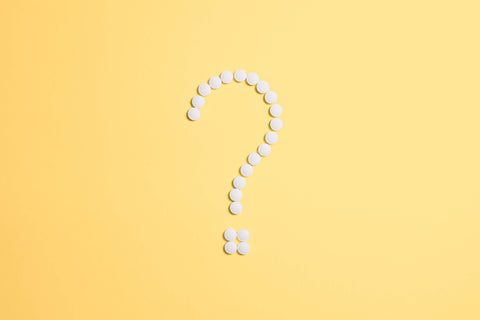



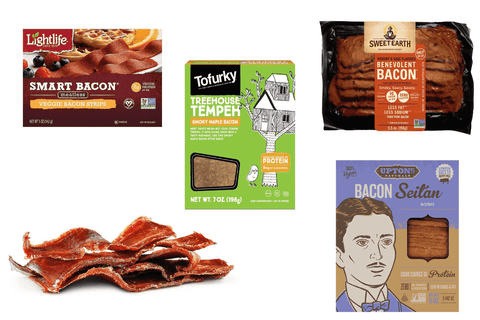
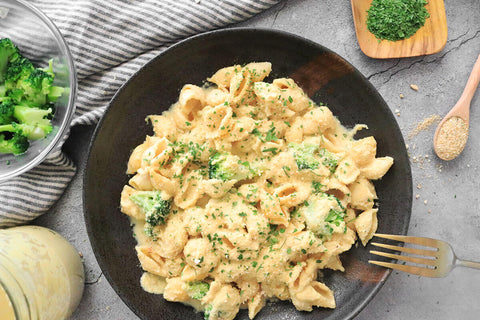
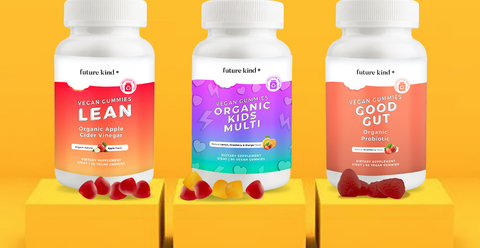
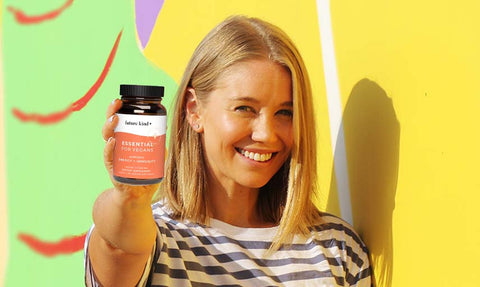
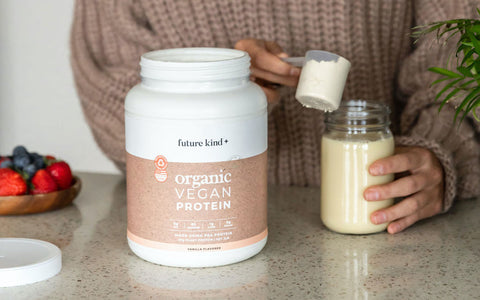
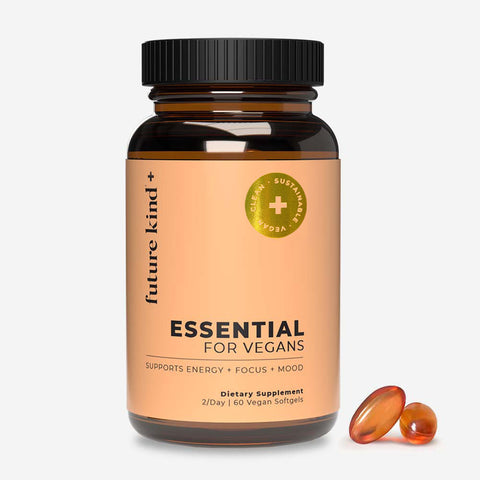
Comments (0)
There are no comments for this article. Be the first one to leave a message!